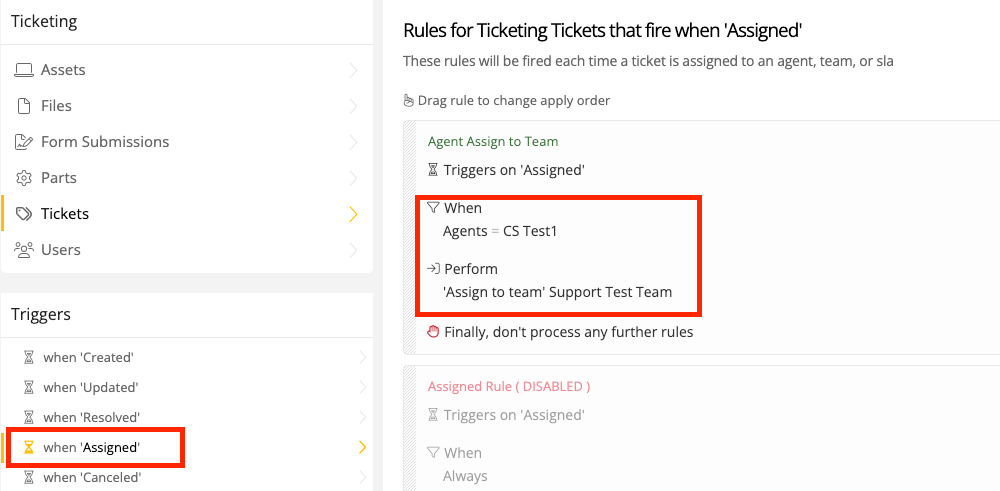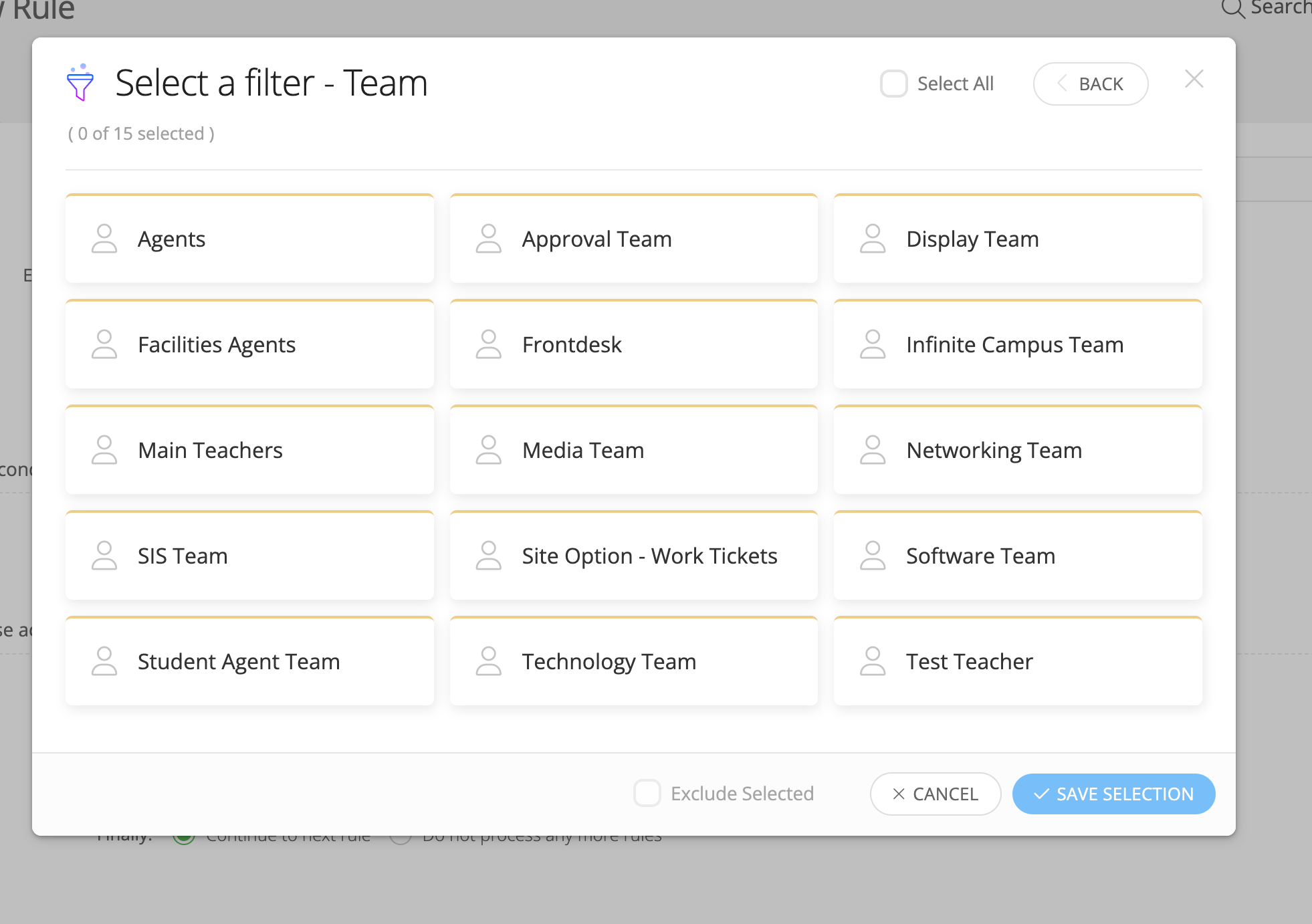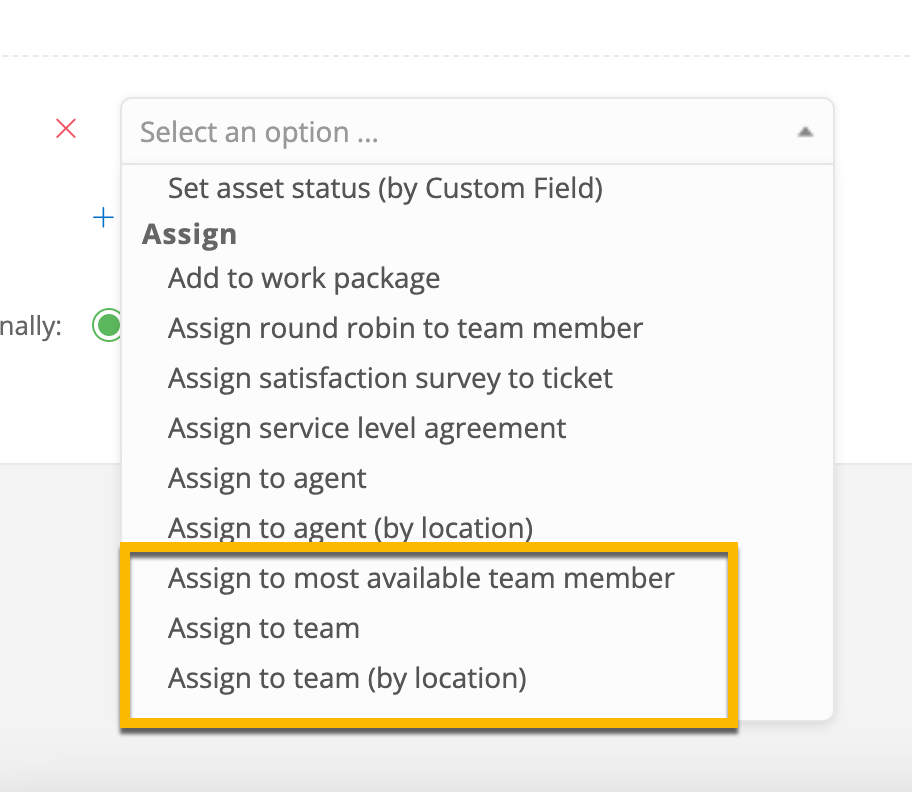Need agent team to match when reassigning. Example: Ticket is currently assigned to Jane and Team A. Jane reassigns ticket to Ralph in Team B. Ticket stays with Team A unless manually changed.
Is there a way to automate the team change based on the agent? (without setting a rule for EACH agent)









